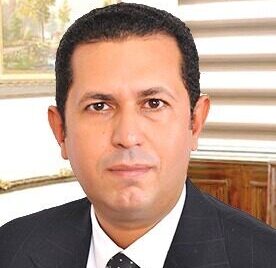Developing infrastructure is not a choice, but a necessity if a country truly wants to attract investment and improve the living standards of its citizens. Despite the global economic challenges, investment in infrastructure is indispensable for development process. Otherwise, the state will fall short of fulfilling the wishes of the public for a decent life.
In this context, President Abdel Fattah El Sisi has worked over the past eight years according to a thoroughly-studied plan to enhance infrastructure in all parts of Egypt.
Since 2015, the state has done everything in its power and spent trillions of pounds and dollars to bridge the huge infrastructure gap and maintain basic level services across all sectors. To do so, Egypt had two options. Either the state presses ahead with ambitious investment plans to finance infrastructure projects to boost the Egyptian economy or it encourages the private sector to collaborate with the state on these projects. Despite being able to carry out these projects successfully, the private sector would have taken too long much to bridge the massive infrastructure gap.
During the inaugural session of the annual meetings of the Asian Infrastructure Investment Bank(AIIB) in the coastal city of Sharm el-Sheikh on 25 September, AIIB President Jin Liqin praised the development impacts of Egyptian investment in infrastructure, saying that they aim to create a green, smart infrastructure and attract new investment in energy, transportation, and water.
Egypt has always been the nation of big dreams. Consider its ancient and modern civilisation, of which the Pyramids and the new Suez Canal, which was built in record time. Thanks to the determination and strong will of its political leadership, now Egypt has successfully managed to build a robust infrastructure, qualifying it to push up local and foreign investments and accelerate economic growth.
However, emerging economies need further low-cost finance to enable them to tackle the threat of climate change, especially amid the ongoing challenges the continent is facing such as Covid-19 and the repercussions of the Russian- Ukrainian war. Egypt’s successful experiment in building a strong infrastructure across all sectors indicates that executing projects is only done with thorough planning, determination and implementation.
But amidst the economic fallout from the war on Ukraine, low-cost finance should be made available to Egypt and other developing countries which have embarked on promoting their infrastructure. Multilateral finance institutions should play a role in this matter.
Simply, the presence of a resilient infrastructure in healthcare, education, transport, and other sectors is vital for a flourishing society. The UN asserts that achieving the sustainable development goals (SDGs) requires building a sustainable and robust infrastructure in the first place.
Mohamed Fahmy is the editor-in-chief of The Egyptian Gazette and Egyptian Mail newspapers






Discussion about this post